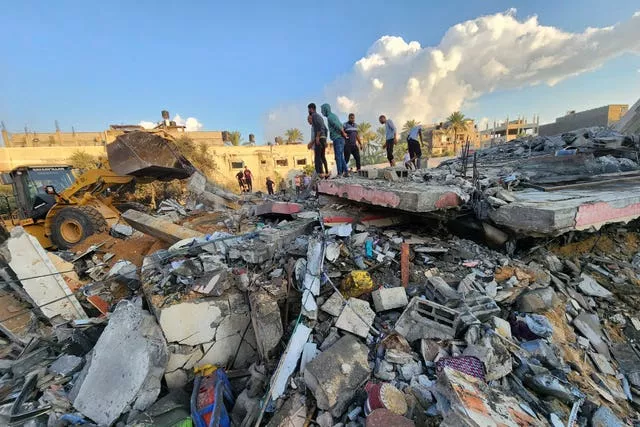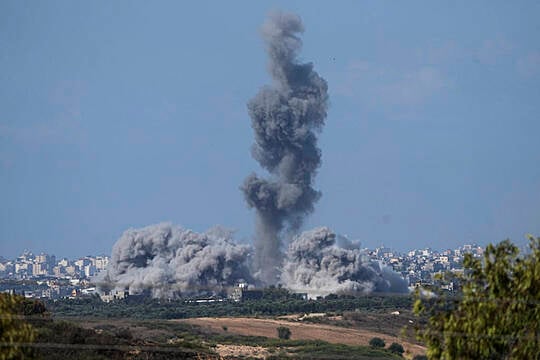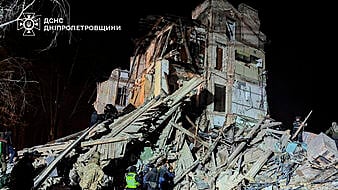Medics in Gaza have warned that thousands could die as hospitals packed with wounded people run desperately low on fuel and basic supplies.
Palestinians in the besieged coastal enclave were struggling to find food, water and safety ahead of an expected Israeli ground offensive in the war sparked by Hamas’s deadly attack.
Israeli forces, supported by a growing deployment of US warships in the region, positioned themselves along Gaza’s border and drilled for what Israel said would be a broad campaign to dismantle the militant group.
A week of blistering airstrikes have demolished entire neighbourhoods in Gaza but failed to stem militant rocket fire into Israel.

The Gaza health ministry said 2,670 Palestinians had been killed and 9,600 wounded since the fighting erupted, more than in the 2014 Gaza war, which lasted over six weeks. This makes this the deadliest of the five Gaza wars for both sides. More than 1,400 Israelis were killed, the vast majority of them civilians, in Hamas’s October 7 assault. An estimated 150 others, including children, were captured by Hamas and taken into Gaza. It is the deadliest war for Israel since the 1973 conflict with Egypt and Syria.
The US state department said Secretary of State Antony Blinken would return to Israel on Monday after completing a frantic six-country tour through Arab nations aimed at preventing the fighting from igniting a broader regional conflict.
Hospitals are expected to run out of generator fuel within two days, according to the UN, which said that that would endanger the lives of thousands of patients. Gaza’s sole power plant shut down for lack of fuel after Israel completely sealed off the 25-mile-long (40km) territory following the Hamas attack.
In Nasser Hospital, in the southern town of Khan Younis, intensive care rooms were packed with wounded patients, most of them children under the age of three. Hundreds of people with severe blast injuries have attended the hospital, where fuel was expected to run out by Monday, said Dr Mohammed Qandeel, a consultant at the critical care complex.

There were 35 patients in the ICU who required ventilators and another 60 on dialysis.
If fuel runs out “it means the whole health system will be shut down”, he said.
“All these patients are in danger of death if the electricity is cut off.”
Dr Hussam Abu Safiya, the head of paediatrics at the Kamal Adwan Hospital in northern Gaza, said it did not evacuate despite Israeli orders.
There were seven newborns in the ICU hooked up to ventilators, he said.
“We cannot evacuate, that would mean death for them and other patients under our care,” he added.

Patients keep arriving with severed limbs, severe burns and other life-threatening injuries.
“It’s frightening,” he said.
The Shifa hospital in Gaza City, the territory’s largest, said it would bury 100 bodies in a mass grave as an emergency measure after its morgue overflowed, with relatives unable to bury their loved ones. Tens of thousands of people seeking safety had gathered in the hospital compound.
Gaza was already in a humanitarian crisis due to a growing shortage of water and medical supplies caused by the Israeli siege. With some bakeries closing, residents said they were unable to buy bread. Israel has also cut off water, forcing many to rely on brackish wells.
Israel has ordered more than one million Palestinians — almost half the territory’s population — to move south. The military says it is trying to clear away civilians ahead of a major campaign against Hamas in the north, where it says the militants have extensive networks of tunnels, bunkers and rocket launchers. Hamas urged people to stay in their homes.







